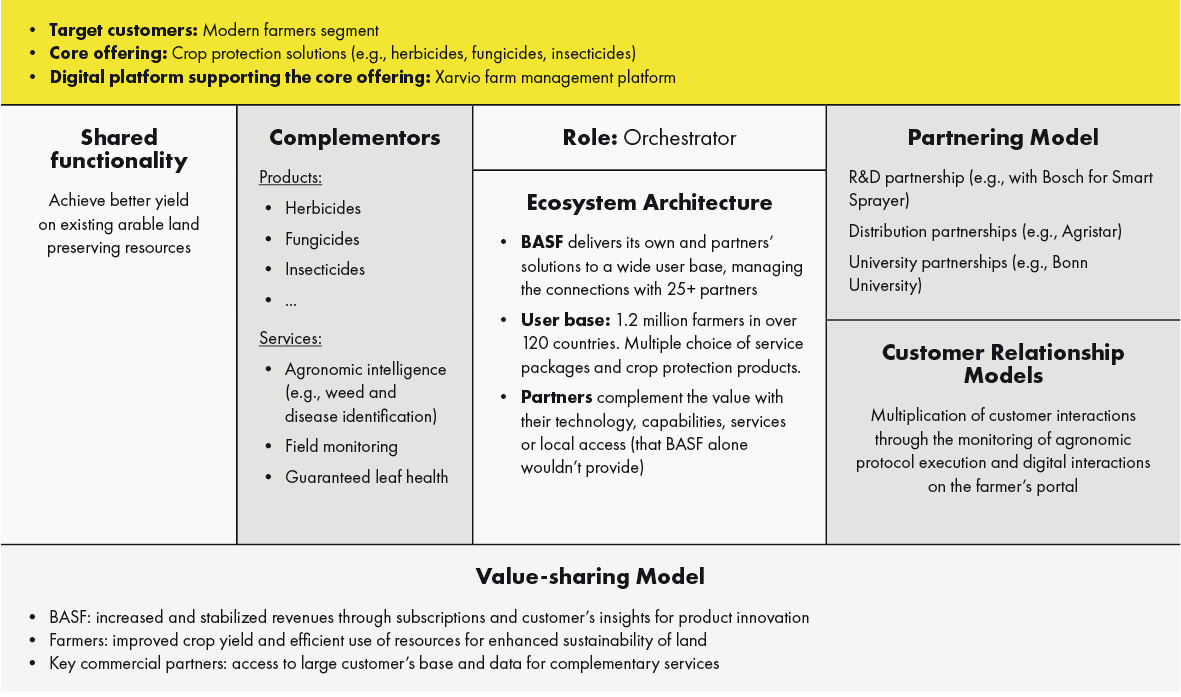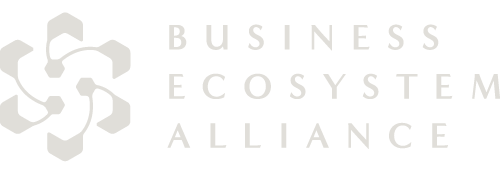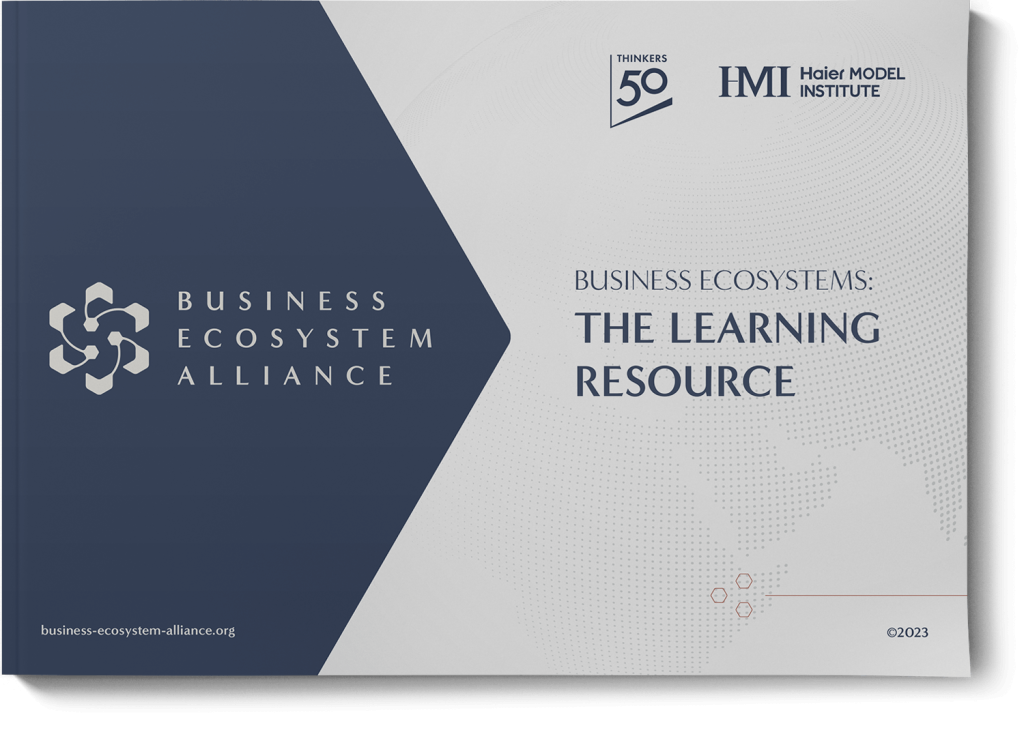How business ecosystems can drive sustainability
Gabriele Rosani and Elisa Farri
The call for a more sustainable economy has become even more urgent during the COVID-19 pandemic.
Looking forward, this trend will strengthen as governments and institutions announce ambitious investment plans, such as the NextGenerationEU, in which sustainability constitutes a central pillar of the recovery initiative. In addition, investors and shareholders have become more serious about sustainability in recent years, carefully evaluating the impact of ESG (Environmental, Social and Governance) issues on their investment portfolios.
In this context, companies will be increasingly held accountable for embedding sustainability into the heart of their strategy. Several firms have already taken their first steps in this direction. For example, is not uncommon to find annual reports explicitly linking strategy to the UN Sustainable Development Goals and tracking ESG metrics. Although sustainable reporting and other actions show companies’ commitment and ambition in addressing sustainability, real progress requires not just better measurement and reporting practices but also fundamental changes in the industry ecosystems and business models.
This is easier said than done. Sustainability is a systemic concept: in most cases, one company alone cannot change the industry’s value model. Companies must join forces, but how? Compared to traditional strategic approaches based on head-to-head competition, the novel concept of business ecosystems better serves the goal of driving new systemic collaborations to create sustainable value for different parties and actors.
At ECSI, we have extensively researched and directly witnessed first examples of such a shift of perspective in making traditional industries more sustainable. Farming is a case in point. With a growing population, the agricultural food system is expected to provide enough access to healthy and affordable food over the next decades. At the same time, there is an urgent need to mitigate its impact on our planet in terms of fewer carbon emissions, soil and water conservation, and reduced food waste. This is a daunting challenge for a single company. It demands a strong coalition of dedicated partners to help farmers achieve more sustainable and better yields while scaling down the environmental footprint.
With this ambition in mind, the agriculture division of the chemical company BASF started a transformational journey towards a more sustainable farming. Over time, BASF created and orchestrated an ecosystem of partners and complementors that support farmers worldwide in making decisions along the entire crop cycle to ensure efficient use of resources and reduced waste.
Shifting from the traditional product view (i.e. “farmers want insecticides to protect their crops”) towards a more systemic view (i.e. “farmers want to get better yields with less footprint”), BASF has successfully built a win-win coalition with more than 25 partners to provide holistic solutions. Starting from the company’s traditional chemical products (e.g. insecticides, herbicides, fungicides), BASF has gradually integrated complementing products and services to monitor soil and crop conditions, assist with disease and pest recognition, and tailor recommending precision treatments with herbicides or fungicides based on in-field conditions.
Farmers can customize their solution by choosing from a basket of crop protection products and agronomic services offered by the ecosystem, which include among others: agronomic data (including weather forecasts, agronomic advice, soil data detection, mapping tools), machine connectivity (provided by leading players such as Agrirouter, John Deere, Nevonex), and equipment tools (like the smart sprayer -- developed together with Bosch -- that with the help of camera sensors differentiates between crops and weeds while crossing the field).
Partnering models entail different agreements: for example, BASF entered commercial agreements with local digital providers (like ULink AgriTech in India), product co-development (like Bosch for the smart aprayer or EZ Lab for IoT and blockchain), distribution partners (like Nutrient and Agrostar).
With the potential to enable 625 million farmers to recognize what is happening in their fields, optimize accordingly and at the same time, act in a more sustainable way, the BASF ecosystem serves more than 1.2 million users in over 120 countries. Compared to 2018, the user base has more than quadrupled. At the core of the ecosystem’s success is the ability to continuously nurture and improve a basket of services offered to the farmers via the xarvioTM digital app, as more partners join the Currently xarvioTM offers three main categories: Scouting, Field Manager and Healthy Fields, each one with several subcategories. As more and more farmers use the app and submit images of their crops, weeds and pests, the AI-powered app’s accuracy improves continuously, thus enhancing the scope of identification.
What is the economic model for a similar ecosystem? Compared to the profit formulas of a traditional business model, ecosystems have a higher degree of complexity as multiple parties are involved – including strategic partners with whom to share value. BASF offers customers (farmers) premium subscriptions to the solution sold at a “dollar per farm” The value exchange with partners varies based on the signed agreements. As the network effects strengthen, the ecosystem grows as a self-reinforcing system, thus attracting both new farmers and new partners to join.
BASF’s agriculture ecosystem illustrates how sustainability can be integrated systematically in a business model that glues together a selected group of committed partners around a shared mission and value -- “better and more sustainable yields along the farmer cycle”. By using data and receiving advice for making decisions, farmers can better manage frequency and dosing (when to spray, how often and where exactly) for a more precise resource utilization with less pollution and higher yield. The benefit is both environmental (more sustainable use of resources), economical (efficiency of production factors for farmers and their families that can earn more thanks to better marketability of healthier crops) as well as social (higher yield per hectare to feed the growing world population).
The main elements of BASF’s ecosystem are summarized in the Business Ecosystem Canvas, an ECSI framework (Figure 1).

BASF is not an isolated example. Other incumbents are building ecosystems to drive sustainability. A leading company in the water and waste sectors, Suez has launched Organix®, a waste management ecosystem helping organic waste producers find new channels for converting waste into energy (e.g., biogas companies). Traditionally the waste-to-energy supply chain has suffered from two main problems. On one hand, organic waste producers face difficulties in finding the right recovery channel. On the other hand, operators of methanation units sometimes experience inconsistent quality, unreliable sources and traceability issues with their organic material supply.
Organix® is a good example of how a business ecosystem approach can overcome such traditional inefficiencies by changing the rules of the game in traditional value chains and creating value for all the parties involved. To start, Suez has put together a coalition of partners including organic waste producers (like food industry manufacturers and cooperatives), methanation unit operators who transform it into energy, a network of logistics and transportation partners, and local governments and municipalities with a stake into a more sustainable waste collection and management. Not only a direct contributor to the ecosystem, Suez acts also as a guarantor of the material quality, the application of the regulations and the traceability of flows along the entire chain. Over time, Organix® has created a virtuous cycle that makes it easier for producers of organic waste to find waste-to-energy operators, and for the operators to access directly the offers.
Launched in 2018 in three French regions (Brittany, Normandy and Pays de la Loire), Organix® now covers the entire French territory and will gradually be enhanced with new functionalities and complementing services.
BASF and Suez offer two important lessons for companies willing to make a significant contribution to reshape their industry to achieve sustainability and systemic change.
- Shift from your company’s product view to more holistic thinking. To achieve sustainability, ‘system’ is the key word. Traditional product thinking shows that a narrow focus is not enough to achieve sustainability goals related to broad structural changes. Moreover, it aims to create value for company’s shareholders, often at the expense of other stakeholders. BASF’s sustainable agriculture ecosystem demonstrates how the single improvement of herbicides by one company alone could fail if it was done without considering the entire system (products, services, tools and digital infrastructure). Similarly, Suez’s Organix®provides a comprehensive business case for sustainability, as it builds a waste-to-energy ecosystem that creates value for all stakeholders, including shareholders, supply chains, civil society, and the planet.
- Evolve from ad hoc commercial partnerships to ecosystem business models. As companies are on an accelerated course to show their contribution to sustainability goals both to their shareholders and local communities, they need to apply more systemic approaches to fuse sustainability with their business strategies. The Business Ecosystem Canvas is a powerful tool to help companies ask the right questions and design an ecosystem strategy that truly embeds sustainability into the business.
- - - - - - - - - - - - - - - - - - - - - - - - - - - - - - -
Sustainability will soon simply be how business is done. Many industries will require fundamental transformation to meet long term sustainability goals. One company alone can make limited impact. A sustainable economy needs a village: companies should join forces, architect, and orchestrate business ecosystems where many parties cooperate to create more value for customers and simultaneously reduce systemic waste and promote efficient use and recovery of resources. Better business for a better planet.
Gabriele Rosani is a senior manager at ECSI Consulting (ecsi-consulting.com) based in Milan, Italy.
Elisa Farri is an associate partner at ECSI Consulting.


